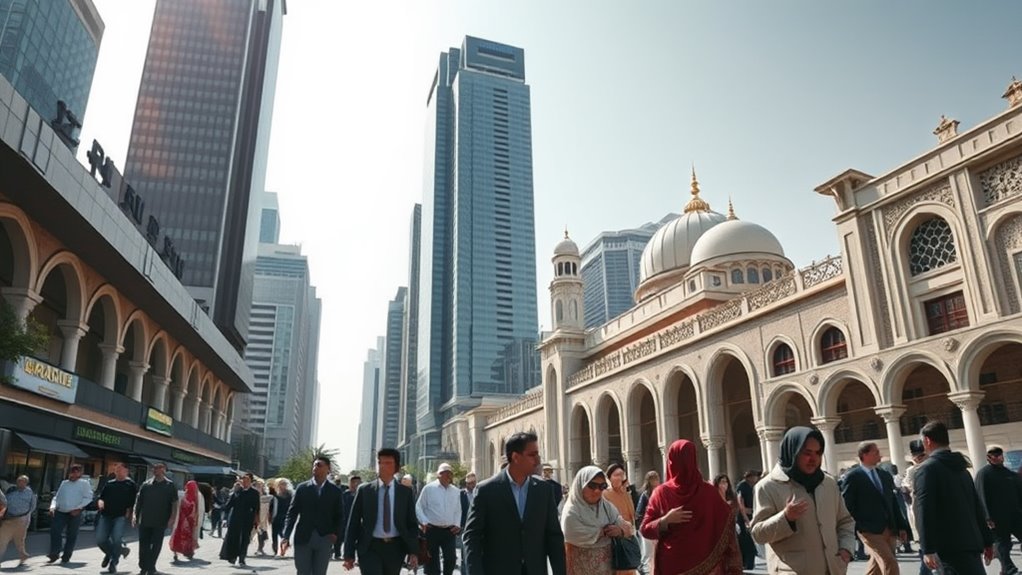
Moving can be one of life’s most stressful experiences—but it doesn’t have to be. Whether you’re relocating across town, heading into the city, or moving out of the Washington, DC area entirely, choosing the right moving company can make a world of difference. With a bustling metropolitan region like DC—filled with historical neighborhoods, tight traffic patterns, and complex parking regulations—working with experienced movers is essential.
In this article, we’ll walk you through what to look for in moversdcarea.com, what services they typically offer, and how to ensure a smooth, stress-free moving experience.
Why Professional Movers in DC Are Worth It
While DIY moving might seem cost-effective, it often comes with hidden expenses—both in terms of time and money. Hiring professional movers in the DC area brings a range of benefits:
- Local Expertise: DC movers understand the intricacies of navigating narrow streets, high-rise buildings, and local parking permits.
- Efficiency: Experienced teams work faster and more efficiently, saving you hours (or even days) of effort.
- Safety: Professionals know how to handle heavy furniture, fragile items, and awkward staircases without damage or injury.
- Insurance and Protection: Reputable moving companies offer insurance options that protect your belongings in case of unexpected mishaps.
Services Offered by DC Area Moving Companies
Most moving companies in the Washington, DC area offer a wide range of services, from basic labor to full-service packages. Here are the most common options:
Local Moving
If you’re relocating within the DC metro area—be it Washington, Northern Virginia, or suburban Maryland—local movers can handle the logistics quickly and efficiently. Local moves are typically charged hourly, with rates depending on the size of the crew and the number of trucks needed.

Long-Distance Moving
Planning a move to a different state? Many DC movers also specialize in long-distance relocations, offering guaranteed delivery windows and transparent pricing.
Packing and Unpacking
Don’t want to deal with the hassle of boxing everything up? Opt for full or partial packing services. Movers bring high-quality packing materials and ensure that fragile and valuable items are properly protected.
Storage Solutions
Some moving companies offer short-term or long-term storage, ideal if your new home isn’t quite ready yet. Climate-controlled and secure, these storage facilities give you peace of mind during the transition.
Commercial/Office Moves
Moving an office in or around DC requires extra care, especially with sensitive electronics and confidential files. Business movers offer after-hours services to minimize disruption and help companies relocate without losing productivity.
What to Look for in a DC Moving Company
Not all movers are created equal. Here are some tips to help you choose the best mover for your needs:
- Licensing and Insurance: Always verify that a company is properly licensed and insured. For interstate moves, check with the Federal Motor Carrier Safety Administration (FMCSA).
- Reviews and Reputation: Look up reviews on platforms like Google, Yelp, and the Better Business Bureau. A long list of satisfied customers is a good sign.
- Transparent Pricing: Avoid companies that won’t provide a written estimate or whose quotes seem unusually low. Get multiple estimates and make sure everything is outlined in writing.
- Experience with DC Moves: The DC area presents unique challenges—make sure your mover has experience dealing with local regulations and building access issues.
- Availability: DC is a busy city, and moving companies can book up quickly, especially during peak seasons (May–September). Try to schedule your move well in advance.

Tips for a Smooth Move in DC
Even with great movers on your side, a few simple steps can help your move go even more smoothly:
- Reserve Parking: In DC, you may need a moving permit to park a truck on the street. Check with the District Department of Transportation (DDOT) or ask your mover to handle this.
- Declutter Ahead of Time: The fewer items you have to move, the cheaper and faster your move will be.
- Label Boxes Clearly: Mark boxes with their contents and destination rooms for easier unpacking.
- Keep Essentials Handy: Pack a “first-night” bag with toiletries, clothes, snacks, and chargers so you’re not digging through boxes on moving day.
Final Thoughts
Choosing the right Movers in the DC area can transform your moving experience from stressful to smooth. By hiring professionals who know the ins and outs of the region, you can relax knowing your belongings—and your sanity—are in good hands. Take the time to research your options, ask the right questions, and plan ahead. Whether you’re moving to Capitol Hill, Georgetown, Arlington, or beyond, a seamless move starts with the right team.





